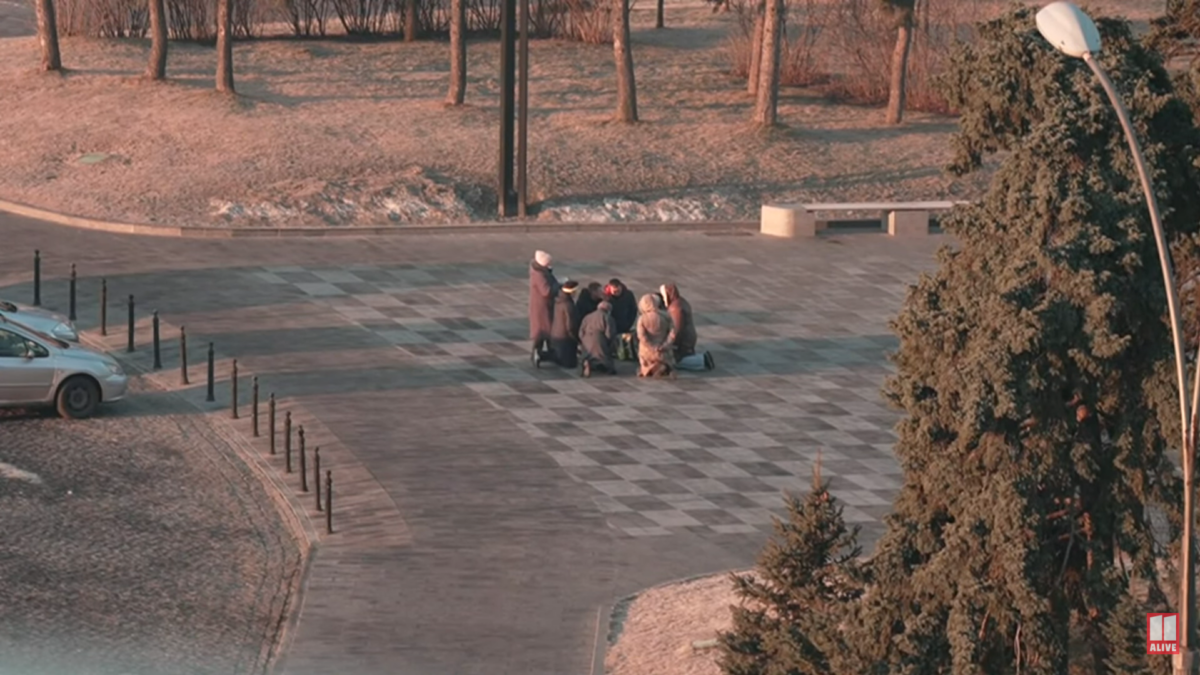There’s a lot of panicked chatter about World War III lately. Twitter is awash in propaganda from both sides of the Russia-Ukraine border. Instagram is flooded with pro-Ukraine posts and profiles are painted with the blue and yellow of the Ukrainian flag.
NPR wants to make sure you know, amid the Russia-Ukraine conflict, how to self-care. Not to be outdone, Fox also has a primer on how to cope with the stress of news of war.
Many of those reactions aren’t bad. It’s good to celebrate stories of courage and to vocally support peace. It’s also good at times to walk away from the news cycle and be present in your own daily responsibilities.
But there is a real danger to thinking that you, as an American Christian who is not on the ground in Ukraine, can do the most good by getting sucked into the online informational meatgrinder. While there’s certainly nothing wrong with using a post or a hashtag to show support for suffering people, it would be a mistake to use such a contribution to pat ourselves on the back for “helping” — as many well-meaning Christians posted black squares on Instagram in 2020 that did little but alleviate their own sense of wanting to be able to say they did something.
We all have a human desire to be in the know, and to an extent, involved, when crisis strikes. It’s why “if it bleeds, it leads” became a news industry saying and why people gossip. I’ll be the first to admit I’ve seen it in myself this week, and felt convicted for it.
Fellow Christians, have you spent as much time in prayer this week as you have refreshing headlines, sharing viral internet posts, or fretting to your friends about what’s going on in Europe? It’s worth considering.
We are called, as the Apostle Paul writes in Ephesians 6:18, to be “praying at all times in the Spirit, with all prayer and supplication. To that end, keep alert with all perseverance, making supplication for all the saints.” In Romans, he entreats us to “Rejoice in hope, be patient in tribulation, be constant in prayer.” Specifically, we are commanded to pray for those in positions of worldly power.
That isn’t to say that, when presented with opportunities to tangibly serve, we should sit on our hands atop our prayer mats. The Bible has plenty to say about faith without works, or being hearers of the word and not doers.
The clear-eyed actions of the church in Ukraine should remind us all to reach for our Bibles before our Twitter feeds. Archbishop Sviatoslav Shevchuk, the head of Ukraine’s Greek Catholic Church, announced his plans to bring Mass to citizens huddled in bomb shelters. He was reportedly scheduled to attend a meeting of bishops in Florence but scrapped the trip to stay behind in Kyiv.
“The church will come to the people,” he said. “Our priests will descend to the underground, they will descend to the bomb shelters, and there they will celebrate the Divine Liturgy.”
Other Ukrainian Christians are asking for, along with prayer, more Bibles.
A defining truth of our faith is our security in salvation that does not come from this world, and our peace that is not attainable through geopolitics. We should seek to steward this earthly life in peace, but its lack should not cause our faith to founder. If Ukrainian Christians can stalwartly bear witness of their heavenly hope from bomb shelters, surely American Christians can do our shared faith the credit of not participating in panic.
May our unchanging concentration on our Savior at a time that makes many anxious even be a testimony pointing to his sovereign grace. He has used times of crisis to His glory before.
The second book of Kings recounts the siege of Jerusalem by Sennacherib, king of Assyria. In response to his taunts and saber-rattling, we’re told, the people of Jerusalem, under the leadership of Hezekiah, “were silent and answered him not a word, for the king’s command was, ‘Do not answer him.'” Instead, Hezekiah went to the house of the Lord. The humble prayer he prayed before the Lord’s deliverance remains a worthy template for our own prayers for the protection of the church, in Ukraine and elsewhere.
O Lord, the God of Israel, enthroned above the cherubim, you are the God, you alone, of all the kingdoms of the earth; you have made heaven and earth. Incline your ear, O Lord, and hear; open your eyes, O Lord, and see; and hear the words of Sennacherib, which he has sent to mock the living God. Truly, O Lord, the kings of Assyria have laid waste the nations and their lands and have cast their gods into the fire, for they were not gods, but the work of men’s hands, wood and stone. Therefore they were destroyed. So now, O Lord our God, save us, please, from his hand, that all the kingdoms of the earth may know that you, O Lord, are God alone.









